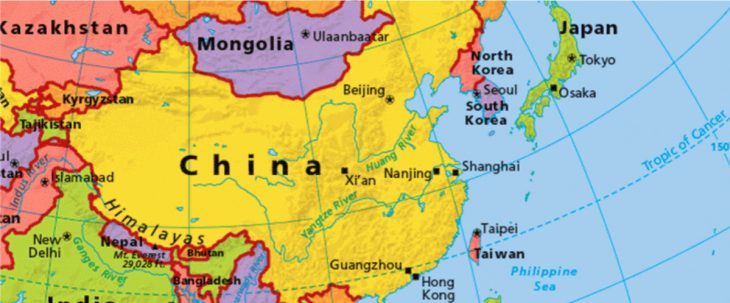Analysts cite potential coronavirus impact to Tyson Foods, Walmart
by February 12, 2020 2:41 pm 3,899 views

China is a long way from Northwest Arkansas but its impact to the region’s two largest companies is important. Tyson Foods and Walmart each have substantial operations in China and throughout Asia and those areas are most impacted by the latest coronavirus outbreak.
Reports from China indicate the food and retail sectors are among those most impacted in the early days of the outbreak. The foodservice sector in China was one of the hardest hit by the coronavirus that analysts say likely cost the economy billions during the country’s Lunar New Year celebrations last week. Analysts with Rabobank said the impact could range between $35 billion and $80 billion.
The food and agriculture sectors have been hit hard as many cities remain under lockdown, according to Rabobank analyst Ping Chew. Chew noted the impact could be more serious and longer-lasting if the virus isn’t contained within the first quarter. The losses from foodservice alone could total $8.8 billion to $13.6 billion.
Analysts said frozen foods, ready-to-eat meals and bottled water are also poised to benefit because of panic buying in impacted regions. If the virus is not under control until late spring, analysts said the impacts on animal proteins could persist.
Tyson Foods operates retail and foodservice divisions in China. The Springdale-based meat giant has not yet said if the virus will have a material impact on earnings for the second quarter which ends March 31, or beyond. The company did forecast seasonally weaker profits for the quarter but did not provide any color on the pending impact of the coronavirus.
“We’re closely monitoring news of coronavirus. We are actively assessing what this outbreak may mean for our global business and preparing for the possibility of any impact. In China, we have been working with the government and we have successfully re-started some of our operations,” Worth Sparkman, corporate spokesman for Tyson Foods, told Talk Business & Politics.
Bentonville-based Walmart also has substantial operations in China with more than 400 retail stores and clubs, distribution centers and supply chain operations. While the retail giant could benefit from the increased sales of water, frozen and ready-to-eat foods should the uptick in demand last, the company’s overall supply chain could be hit hard as the company imports substantial products from China and other Asian countries that source raw materials in China.
Ike Boruchow, an analyst with Wells Fargo Securities, recently lowered price estimates for retailers with meaningful exposure to China. He said the overall supply chain has not likely factored in the financial impact it will feel because of the slowing in China. About 40% of all shipments that entered the United States last month came from China, according to Freightwaves, and a recent report from the trade publication on the coronavirus showed 7% of vessel sailings from China to the West Coast were canceled as a result of the virus.
Walmart declined to speak on potential financial impact ahead of the company’s fiscal year-end earnings slated for Feb. 18. Walmart International CEO Judith McKenna did say the company is working with authorities in China and its employees and suppliers on a proactive plan to help reduce the spread of the virus. Walmart limited all business travel to and from mainland China and is conducting all meetings virtually. Walmart said it is working through its global supply chain to increase the supply of essential items for customers and employees. The company also donated $143,428 to provide medical supplies and increased support to Hubei, the region most impacted, according to McKenna.
Oliver Chen, a retail analyst with Cowen, expects the coronavirus illness will substantially curtail store traffic in China and neighboring countries and be disruptive to the supply chains. He said apparel retailers will feel it and even those who source final goods from Vietnam and other Asian counties will also be impacted because those counties get substantial raw materials from China. Chen said the luxury retail sector could experience the most material impact. He pegs the annual revenue exposure for the luxury category at about 14%.
“It appears that supply disruptions and hoarding due to the coronavirus outbreak helped to keep food prices elevated during the week after Chinese New Year, when they would normally drop back,” said Julian Evans-Pritchard, senior China economist, at consultancy Capital Economics.
Consumer prices in China rose 5.4% in January, the fastest pace since 2008, because of supply chain disruptions, he added.
Analysts say the virus outbreak has rewritten the supply and demand story in China and they expect prices will continue to rise due to weak supply. This fallout will also likely impact companies like Tyson Foods and Walmart that have production and sales in China and the region. Chen said the fallout of rising prices could spread across the globe if factories can’t soon restart production.
